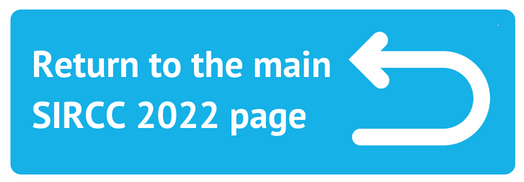Following two unprecedented years of managing through a pandemic, we’ve heard of extraordinary efforts by Scotland’s residential child care sector who have come together to find ways around the challenges, often with limited resources and little time to plan ahead.
Faced with these pressures, how might the concept of ‘hope’ help to enhance the wellbeing of staff and practitioners? How can we maintain hope during times of challenge and change? And how can we promote hope in our ways of working and ensure that everybody’s voice is heard?
“Hope is empowering our families to focus on strengths and positives in their lives and using these strengths to reach their goals and become their own person”
- Family support worker, East Ayrshire (source: Talking Hope)
About the Talking Hope project
As part of the SIRCC 2022 Online programme, with its theme of ‘Recovery and Resilience’, Dr Emma Miller, Senior Honorary Research Associate at the University of Strathclyde, will deliver a workshop on her research project, ‘Talking Hope’, which centres on the importance of hope - even in times of hopelessness.
The aim of Talking Hope is to create space for more hopeful conversations with and about young people who are being supported by services. These might be focused on setting goals, building the motivation to work towards them, or exploring other factors identified as important by young people, their families, and the staff who support them, in achieving hope. Over time, these conversations help to encourage deeper, more compassionate relationships, with a focus on collective wellbeing.
Find out more about Talking Hope
Read the Talking Hope research
Creating an online Hope Reservoir at SIRCC Online
The stories of hope captured from Talking Hope to date, with organisations and services including the Good Shepherd Centre, a secure close support and semi-independent living service for young people, and Ayrshire and Arran Child and Adolescent Mental Health Services (CAMHS), have been brought together by Dr Emma Miller in an online Hope Reservoir. The Hope Reservoir is a place that staff and practitioners can dip into to read and learn about hopeful practice from others and remind themselves of more hopeful times.
During SIRCC Online 2022, inspired by and in partnership with Talking Hope, we’re inviting attendees to share stories, words or pictures that have helped in holding onto hope in their everyday practice. This could be:
- a story about something in your everyday practice that went well
- an inspiring quote or poem
- a piece of advice or guidance
- a photo, a picture, or a piece of artwork
- a reflection on what hope means to you
- or anything else that shares and inspires hope!
How to share your stories, words and pictures
If you’d like to share your story of hope, you can do so by clicking the button below and completing our online form.
Filling out the form will only take a few moments and all the responses we publish will be done so anonymously.
You can add words, pictures, or both, and, like the examples on this page, your response doesn’t have to be lengthy – just a sentence or paragraph can give a real insight into what hope means to you.
The online form will be open from Monday 7 November to Friday 11 November. Once the form has closed, CELCIS will collect the responses and publish them together on our website in the weeks following SIRCC.
If you have any problems accessing or filling out the online form, please get in touch and let us know.
“We worked with a girl who got more confident being able to tell us how she felt about things we were saying. A major one was that we thought we had made progress by switching from saying ‘time out’ for someone who needs time to settle down a bit – to saying ‘time away.’ We thought it sounded less punitive and some young people preferred it. For this girl, who had experienced a lot of rejection in her life, it was a threatening word. So we used ‘time in’ and she was much happier with it.”
- Senior support worker, Rossie secure care centre (source: Talking Hope)
“Talking about hope at the end of the wellbeing web during a meeting creates a really positive ending. One young person recognised what support he needed for his emotions. It helped him acknowledge that everyone was there to help with the changes he wanted to make”
- Staff member, Stirling (source: Talking Hope)




